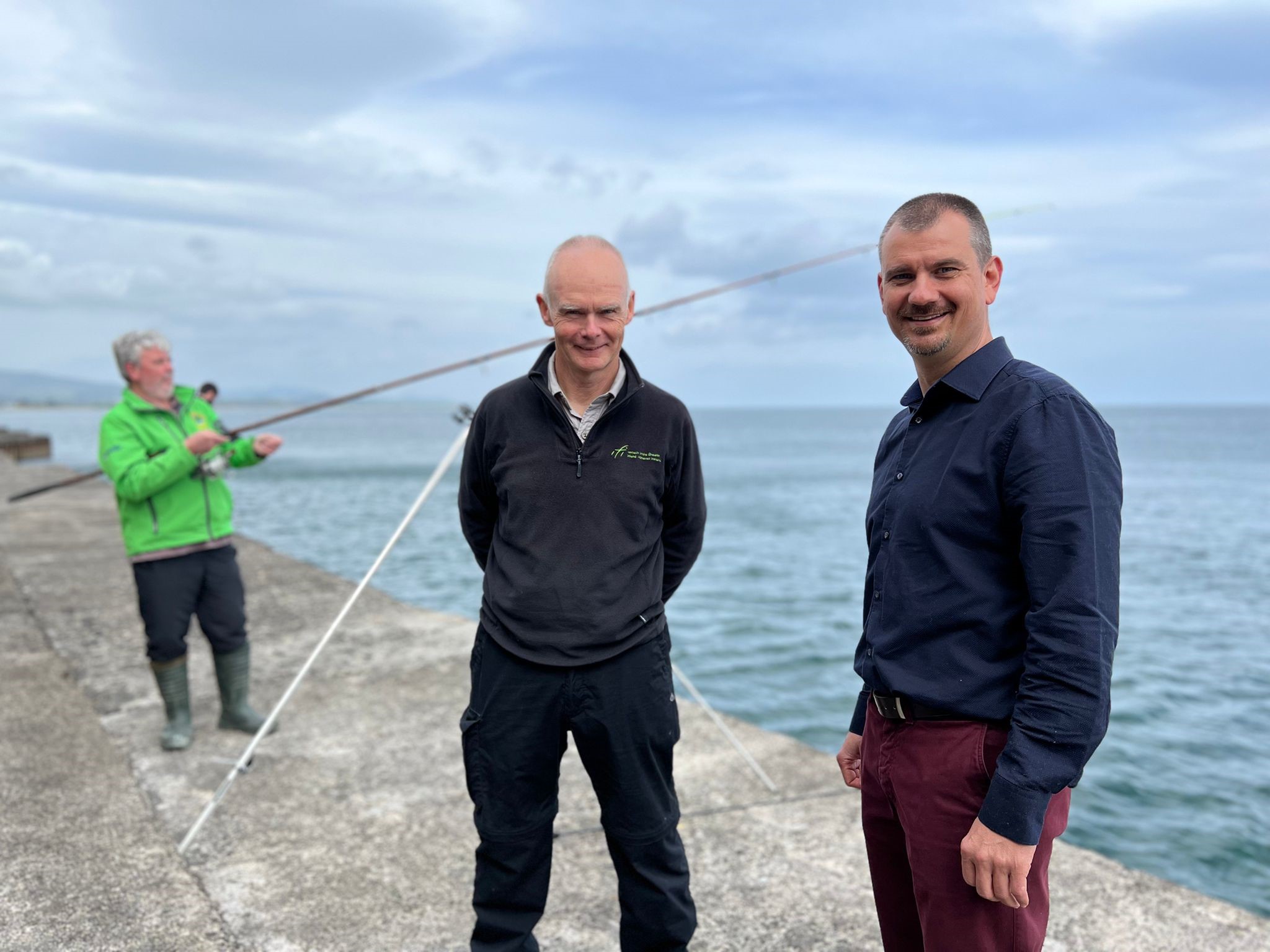Esri Ireland and Inland Fisheries Ireland are calling on sea anglers in Ireland to help conserve fish stock.
Share
- The community of up to 250,000 recreational sea anglers in Ireland is being called upon by Inland Fisheries Ireland and Esri Ireland to play an active role in conserving Ireland’s fish stocks
- Esri’s digital mapping system is enabling anglers to gather and share real-time information from any device about the fish they catch and release
- The web-based tool is being used by Inland Fisheries Ireland to estimate sea anglers’ catches in Ireland

Dublin, 8th September 2022: Esri Ireland, the market leader in Geographic Information Systems (GIS), and Inland Fisheries Ireland are calling on the community of up to 250,000 recreational sea anglers in Ireland to play an active role in helping to conserve marine fish stocks. Esri recently announced that its digital mapping system is being used by Inland Fisheries Ireland to help safeguard fish populations and protect marine ecosystems.
Esri’s ArcGIS system supports the Irish Marine Recreational Angling Survey (IMREC) which aims to estimate sea anglers’ catches along the 3,000km of Irish coastline. Whether they are shore anglers, small boat anglers or charter boat anglers, each member can sign up to access Esri’s Survey123 web-based app where they can record their catches and angling successes with a personalised dashboard.
Inland Fisheries Ireland is the state agency for protecting, managing and conserving inland fisheries and sea angling resources. To meet its EU data collection requirements around species, locations, and volumes of fish caught annually in European waters, Inland Fisheries Ireland saw a need for a collaborative approach to collate its own data with self-reporting by recreational sea anglers.
Turning anglers into citizen scientists, the easy-to-use app enables anglers around Ireland to gather and upload real-time information from any device about the fish they catch and release. This anonymised information is then automatically transferred to a shared repository, where it can be easily viewed by the anglers and monitored by Inland Fisheries Ireland to identify patterns in the species distribution, volumes and weight of fish caught, and estimated catch rates.
In turn, Inland Fisheries Ireland has greater control over and confidence in the accuracy and consistency of the data collected. The EU is particularly interested in data on cod, pollock, sharks, rays, sea bass and highly migratory species such as tuna, but the solution can be configured to capture data on other species too.
Sea anglers of all experience levels can sign up here via the Inland Fisheries Ireland website, and they will also find a quick and easy video guide on how to use the app here. September is one of the busiest periods for sea angling around the Irish coast, so it’s a great time to start recording your catch, according to William Roche, a Senior Research Officer at Inland Fisheries Ireland.
He said: “With more anglers collecting data, we will be able to build up a better picture of the state of fish stocks off Ireland’s coast. ArcGIS will enable us to work with anglers as citizen scientists and crowdsource the large volume of data that we require for EU and national reporting. The personalised dashboards will help to make the recording of data a habitual activity for anglers, and we hope they will enjoy entering their catch data and take pride in their roles as stewards of the sea.”
Schalk Van Lill, Customer Success Manager, Esri Ireland: “We are delighted to work with Inland Fisheries Ireland on this project and enable the ongoing monitoring and safeguarding of fish populations. Citizen science like this provides broad spatial coverage all around the coastline of Ireland, enabling Inland Fisheries Ireland to efficiently comply with requirements. The solution can be easily scaled up to accept data uploads from more and more participants, allowing Inland Fisheries Ireland to expand the scheme over time.”